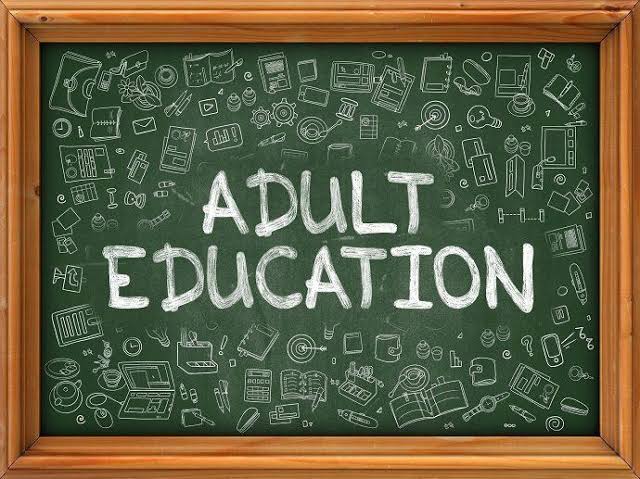Adult education is critical component of educational landscape especially in developing country like Nigeria. It encompasses variety of learning activities. Programs that aim to provide adults with skills and knowledge necessary for personal development, employment and active participation in society. The importance of adult education in Nigeria cannot be overstated. It plays vital role in addressing numerous socio-economic challenges. Fostering national development is key. This article explores the significance of adult education in Nigeria. Highlighting its impact on economic growth social inclusion, health and democratic participation.
Economic Growth and Workforce Development
Enhancing Employability
Adult education is instrumental in enhancing employability of Nigerian workforce. Many adults particularly those who did not have opportunity to complete their formal education, lack skills required for modern job market. Adult education programs offer vocational training. Literacy courses. Skill development initiatives that equip individuals with needed competencies to secure employment. By improving skills and qualifications of adult population Nigeria can build more competent and competitive workforce. This will drive economic growth and reduce unemployment rates.
Promoting Entrepreneurship
In addition to enhancing employability adult education promotes entrepreneurship by providing individuals with knowledge and skills needed to start and manage their businesses. Courses on business management. Financial literacy. Entrepreneurial skills empower adults to create their economic opportunities. This fosters innovation and job creation. This entrepreneurial spirit is crucial for Nigeria's economic development. Small and medium-sized enterprises (SMEs) are significant contributors to the country's GDP and employment.
Social Inclusion and Equity
Bridging the Education Gap
Adult education plays a vital role in bridging the education gap in Nigeria. Many adults, especially women and individuals from marginalized communities, did not have access to education during their childhood due to socio-economic barriers. Adult education programs provide a second chance for these individuals to acquire literacy and numeracy skills, enabling them to participate more fully in society. By promoting lifelong learning, adult education helps to reduce inequalities and ensure that all citizens have the opportunity to reach their potential.
Empowering Women
Women in Nigeria face numerous challenges, including limited access to education and economic opportunities. Adult education empowers women by providing them with the skills and knowledge needed to improve their socio-economic status. Educated women are more likely to participate in the labor market, make informed decisions about their health and family, and contribute to their communities. By promoting gender equality through adult education, Nigeria can harness the potential of half its population, driving social and economic progress.
Health and Wellbeing
Promoting Health Literacy
Adult education significantly impacts health literacy, enabling individuals to make informed decisions about their health and wellbeing. Health education programs teach adults about nutrition, hygiene, disease prevention, and reproductive health, contributing to improved public health outcomes. In Nigeria, where communicable diseases and maternal mortality rates are high, health literacy is crucial for reducing the burden of disease and enhancing the quality of life.
Reducing Poverty and Improving Living Standards
Education is a powerful tool for reducing poverty and improving living standards. Adult education equips individuals with the skills needed to secure better-paying jobs, manage their finances effectively, and access social services. By enhancing the economic prospects of adults, education helps to break the cycle of poverty and improve living conditions for families and communities. Educated individuals are more likely to invest in their children's education, creating a positive ripple effect that benefits future generations.
Democratic Participation and Civic Engagement
Fostering Active Citizenship
Adult education fosters active citizenship by promoting civic engagement and democratic participation. Through courses on civic education, human rights, and governance, adults gain an understanding of their rights and responsibilities as citizens. Educated individuals are more likely to participate in community activities, vote in elections, and advocate for social change. By empowering citizens to engage in the democratic process, adult education strengthens governance and promotes social cohesion.
Enhancing Community Development
Community development is closely linked to the education and empowerment of its members. Adult education programs that focus on community development skills, such as leadership, conflict resolution, and project management, enable individuals to take an active role in improving their communities. Educated adults are better equipped to identify local needs, mobilize resources, and implement sustainable development projects. This grassroots approach to development fosters a sense of ownership and accountability, leading to more resilient and self-reliant communities.
Addressing Technological and Digital Literacy
Adapting to the Digital Age
In today's digital age, technological literacy is essential for personal and professional development. Adult education programs that incorporate digital literacy training enable individuals to navigate and utilize digital tools effectively. This includes basic computer skills, internet usage, and familiarity with digital communication platforms. By equipping adults with these skills, education helps bridge the digital divide, ensuring that all citizens can participate in the digital economy and access online services.
Supporting Lifelong Learning
The concept of lifelong learning is integral to adult education, emphasizing the continuous acquisition of knowledge and skills throughout an individual's life. In a rapidly changing world, where new technologies and industries emerge regularly, lifelong learning is crucial for adapting to new challenges and opportunities. Adult education programs that promote lifelong learning encourage individuals to remain curious, adaptable, and proactive in their personal and professional growth.
Conclusion
The importance of adult education in Nigeria is multifaceted, impacting economic growth, social inclusion, health, and democratic participation. By providing opportunities for skill development, literacy, and personal empowerment, adult education addresses critical socio-economic challenges and fosters national development. As Nigeria continues to navigate the complexities of a developing nation, investing in adult education will be essential for building a more equitable, prosperous, and resilient society. Through comprehensive and inclusive adult education programs, Nigeria can unlock the potential of its adult population, driving progress and creating a brighter future for all.
